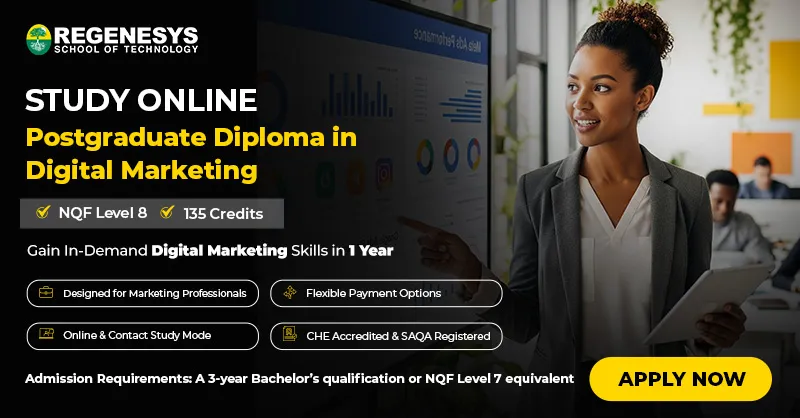Social media marketing and e-commerce are at the forefront of the digital economy. Social media platforms offer businesses unparalleled access to vast audiences, while e-commerce provides streamlined avenues for sales. Together, they create a dynamic ecosystem where brands can engage with and retain customers more effectively than ever before.
The significance of this integration is evident in evolving consumer behaviour, where purchasing decisions are increasingly influenced by social media interactions. Businesses must understand this synergy to remain competitive and profitable.
In this article, we will explore how social media marketing and e-commerce work together, strategies for integration, tools, challenges, and future trends.
Table of Contents
Understanding Social Media Marketing
Social media marketing (SMM) involves using platforms like Facebook, Instagram, TikTok, LinkedIn, and Pinterest to promote products, services, or brands. Its primary purpose is to create awareness, build engagement, and drive sales.
Some of the benefits and applications of social media marketing for businesses are:
- Brand Awareness: Reach a broader audience and increase visibility.
- Customer Engagement: Interact directly with customers to build trust and loyalty.
- Targeted Advertising: Deliver personalised campaigns based on demographics and interests.
- Community Building: Establish a loyal following for long-term engagement.
- Analytics-Driven Optimisation: Track performance metrics to refine campaigns.
Read more on How Has Social Media Changed Marketing? A Strategic Overview

Overview of E-Commerce
E-commerce, the buying and selling of goods or services online, has transformed how businesses and consumers interact. It offers unprecedented market reach, convenience, and opportunities for growth.
Understanding the different e-commerce models helps businesses select the approach that best suits their strategy and target audience.
E-commerce can be categorised into the following:
- B2C (Business to Consumer): Businesses sell products or services directly to end consumers.
- B2B (Business to Business): Transactions take place between one business and another.
- C2C (Consumer to Consumer): Individuals sell products or services directly to other consumers.
- D2C (Direct to Consumer): Brands sell directly to consumers without intermediaries.
Read more on How Does Social Media Marketing Affect Small Businesses in the Digital Age?
How Social Media Marketing Supports E-Commerce?
Social media marketing connects brand messages with online sales channels easily. When businesses combine social media campaigns with e-commerce platforms, they create a smooth customer journey. This journey takes prospects from awareness to purchase while building trust and loyalty.
This is why ourPostgraduate Diploma in Digital Marketing includes Social Media Marketing and E-Commerce as a core module.
The main ways social media marketing supports e-commerce include:
- Driving Traffic: Social platforms guide potential customers directly to e-commerce sites, increasing the likelihood of conversion.
- Social Commerce: Social media platforms now allow users to make purchases directly within the app, streamlining the buying process.
- Building Trust: Businesses can leverage customer reviews, testimonials, and influencer endorsements to enhance credibility and strengthen buyer confidence.
- Retargeting Ads: Social media retargeting campaigns target users who have shown interest in products but did not make a purchase. This helps increase conversion rates.

Strategies for Effective Integration
To achieve synergy between social media marketing and e-commerce, you need a clear strategy. This strategy should combine creative content, data-driven decisions, and customer engagement.
Businesses must ensure that their social media efforts directly support online sales goals while reinforcing brand identity. Students who enrol for the Regenesys Business SchoolPostgraduate Diploma in Digital Marketing programme explore these integration strategies to design impactful digital campaigns:
- Unified Branding:Keep visuals, messaging, and tone the same on all social media and e-commerce sites. This helps create a strong brand experience.
- Content Marketing: Develop engaging posts, stories, reels, and videos that showcase products, highlight customer stories, and encourage interaction.
- Paid Advertising: Use targeted social media ads to reach specific audience segments, drive qualified traffic, and boost conversions.
- Community Engagement: Respond promptly to customer enquiries, encourage discussions, and foster an online community that supports repeat purchases and advocacy.
Read more on Social Media Marketing Jobs: Career Paths, Roles & Packages
Challenges in Social Media and E-commerce Integration
While integrating social media marketing with e-commerce presents remarkable opportunities, it also introduces challenges that require strategic management. Learning to predict and solve these problems is an important skill.
This is taught in the Regenesys Postgraduate Diploma in Digital Marketing programme. It helps students manage campaigns well in changing digital environments.
Some of the most common challenges businesses encounter include:
- Algorithm Changes: Frequent updates on social platforms can impact organic reach and visibility, requiring ongoing content optimisation.
- Organic vs Paid Content: Finding the right balance between authentic engagement and paid promotion helps maintain credibility and audience interest.
- Reputation Management: Negative feedback or online criticism must be addressed promptly and professionally to protect brand reputation.
- Data Privacy: Adhering to global and local data protection laws fosters customer trust and ensures regulatory compliance.
Future Trends in Social Media and E-commerce
The link between social media and e-commerce is changing. Technology is reshaping how people connect with brands. Businesses that stay ahead of these developments can strengthen customer engagement and increase sales performance. For marketers, understanding these shifts is vital to remain competitive in a digitally driven marketplace.
Some emerging trends include:
- AI-Driven Personalisation: Customise product recommendations, content, and advertisements based on user preferences and behaviour patterns.
- Augmented Reality (AR): Offer immersive, interactive product experiences that allow customers to explore items virtually before purchasing.
- Live Shopping: Merge real-time video streaming with online shopping to build trust and immediate purchase opportunities.
Read more on How to Market Your Business on Social Media: A Strategic Guide for 2025

Conclusion
Integrating social media marketing with e-commerce is vital for businesses aiming to thrive in the digital economy. A strategic approach enhances visibility, builds customer loyalty, and drives measurable sales outcomes.
The Regenesys Postgraduate Diploma in Digital Marketing helps future digital marketers gain practical skills. Students learn about social media marketing, e-commerce, analytics, and managing campaigns. Discover how to advance your career by exploring our CHE-accredited programme on the Regenesys Education website.
Social Media Marketing – FAQ
What is the connection between social media marketing and e-commerce?
Social media marketing and e-commerce work together by creating a seamless path from brand discovery to purchase. Social media platforms drive traffic, build awareness, and encourage direct buying through social commerce features.
How does social media influence consumer buying decisions?
Consumers often rely on social media for product recommendations, reviews, and influencer endorsements. These interactions shape perceptions and significantly influence purchase decisions.
Why should businesses integrate social media with e-commerce?
Integration helps businesses reach broader audiences, personalise marketing efforts, and streamline the buying journey. It also increases engagement and boosts sales conversions.
What challenges do marketers face in integrating social media and e-commerce?
Common challenges include managing algorithm changes, maintaining data privacy, balancing organic and paid strategies, and handling online reputation effectively.
How can marketers overcome these challenges?
Marketers can develop strong analytical and strategic skills to manage these challenges. Enrolling in the Regenesys Postgraduate Diploma in Digital Marketing provides practical training in managing campaigns, understanding algorithms, and ensuring compliance.






